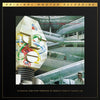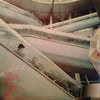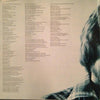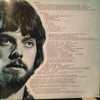







The Alan Parsons Project - I Robot (2LP, 45RPM, Box set, 1STEP, SuperVinyl)
ORDER LIMITED TO ONE ITEM PER CUSTOMER
[click here to see more vinyl featuring The Alan Parsons Project]
Alan Parsons – keyboards, vocoder, backing vocals, acoustic guitar
David Paton – bass, acoustic guitar, backing vocals
Stuart Tosh – drums, percussion, backing vocals
Ian Bairnson – electric and acoustic guitars, backing vocals
Eric Woolfson – keyboards, vocoder, backing vocals
Duncan Mackay – keyboards
B.J. Cole – steel guitar
John Leach – cimbalom, kantele
Lenny Zakatek, Allan Clarke, Steve Harley, Jack Harris, Peter Straker, Jaki Whitren, Dave Townsend, the English Chorale, the New Philharmonia Chorus – vocals
Hilary Western – backing vocals
Smokey Parsons – backing vocals
Tony Rivers, John Perry and Stu Calver – backing vocals on "Some Other Time"
2 LPs, box set
Limited to 10,000 numbered copies
Original analog Master tape : YES
UltraDisc One-Step (UDS1)
Heavy Press : 180g SuperVinyl
Record color : black
Speed : 45 RPM
Size : 12'’
Stereo
Studio
Record Press : RTI
Label : MOFI
Original Label : Arista
Recorded December 1976 – March 1977 at Abbey Road Studios, London
Engineered & mixed by Alan Parsons
Produced by Alan Parsons
Remastered by Krieg Wunderlich
Originally released in 1977
To be reissued in 2022
Tracks:
Side A :
- I Robot
- I Wouldn't Want to Be Like You
Side B :
- Some Other Time
- Breakdown
- Don't Let It Show
Side C :
- The Voice
- Nucleus
- Day After Day (The Show Must Go On)
Side D :
- Total Eclipse
- Genesis Ch. 1 V. 32
Reviews:
Alan Parsons delivered a detailed blueprint for his Project on their 1975 debut, Tales of Mystery and Imagination, but it was on its 1977 follow-up, I Robot, that the outfit reached its true potential. Borrowing not just its title but concept from Isaac Asimov's classic sci-fi Robot trilogy, this album explores many of the philosophies regarding artificial intelligence -- will it overtake man, what does it mean to be man, what responsibilities do mechanical beings have to their creators, and so on and so forth -- with enough knotty intelligence to make it a seminal text of late-'70s geeks, and while it is also true that appreciating I Robot does require a love of either sci-fi or art rock, it is also true that sci-fi art rock never came any better than this. Compare it to Jeff Wayne's War of the Worlds, released just a year after this and demonstrating some clear influence from Parsons: that flirts voraciously with camp, but this, for all of its pomp and circumstance, for all of its overblown arrangements, this is music that's played deadly serious. Even when the vocal choirs pile up at the end of "Breakdown" or when the Project delves into some tight, glossy white funk on "The Voice," complete with punctuations from robotic voices and whining slide guitars, there isn't much sense of fun, but there is a sense of mystery and a sense of drama that can be very absorbing if you're prepared to give yourself over to it. The most fascinating thing about the album is that the music is restless, shifting from mood to mood within the course of a song, but unlike some art pop there is attention paid to hooks -- most notably, of course, on the hit "I Wouldn't Want to Be Like You," a tense, paranoid neo-disco rocker that was the APP's breakthrough. It's also the closest thing to a concise pop song here -- other tunes have plenty of hooks, but they change their tempo and feel quickly, which is what makes this an art rock album instead of a pop album. And while that may not snare in listeners who love the hit (they should turn to Eye in the Sky instead, the Project's one true pop album), that sense of melody when married to the artistic restlessness and geeky sensibility makes for a unique, compelling album and the one record that truly captures mind and spirit of the Alan Parsons Project." AllMusic Review by Stephen Thomas Erlewine
UltraDisc One-Step : Instead of utilizing the industry-standard three-step lacquer process, Mobile Fidelity Sound Lab's new UltraDisc One-Step (UD1S) uses only one step, bypassing two processes of generational loss. While three-step processing is designed for optimum yield and efficiency, UD1S is created for the ultimate in sound quality. Just as Mobile Fidelity pioneered the UHQR (Ultra High-Quality Record) with JVC in the 1980s, UD1S again represents another state-of-the-art advance in the record-manufacturing process. MFSL engineers begin with the original master tapes and meticulously cut a set of lacquers. These lacquers are used to create a very fragile, pristine UD1S stamper called a "convert." Delicate "converts" are then formed into the actual record stampers, producing a final product that literally and figuratively brings you closer to the music. By skipping the additional steps of pulling another positive and an additional negative, as done in the three-step process used in standard pressings, UD1S produces a final LP with the lowest noise floor possible today. The removal of the additional two steps of generational loss in the plating process reveals tremendous amounts of extra musical detail and dynamics, which are otherwise lost due to the standard copying process. The exclusive nature of these very limited pressings guarantees that every UD1S pressing serves as an immaculate replica of the lacquer sourced directly from the original master tape. Every conceivable aspect of vinyl production is optimized to produce the most perfect record album available today.
MoFi SuperVinyl: The World's Quietest Surfaces and Cleanest Grooves: Developed by NEOTECH and RTI, MoFi SuperVinyl is the most exacting-to-specification vinyl compound ever created. Analog lovers have never seen (or heard) anything like it. Extraordinarily expensive and extremely painstaking to produce, the special proprietary compound addresses two specific areas of improvement: noise floor reduction and enhanced groove definition. The vinyl composition features a new carbonless dye (hold the disc up to the light and see) and produces the world's quietest surfaces. This high-definition formula also allows for the creation of cleaner grooves that are indistinguishable from the original lacquer. MoFi SuperVinyl provides the closest approximation of what the label's engineers hear in the mastering lab.
Ratings :
AllMusic : 4,5 / 5 , Discogs : 4,2 / 5



